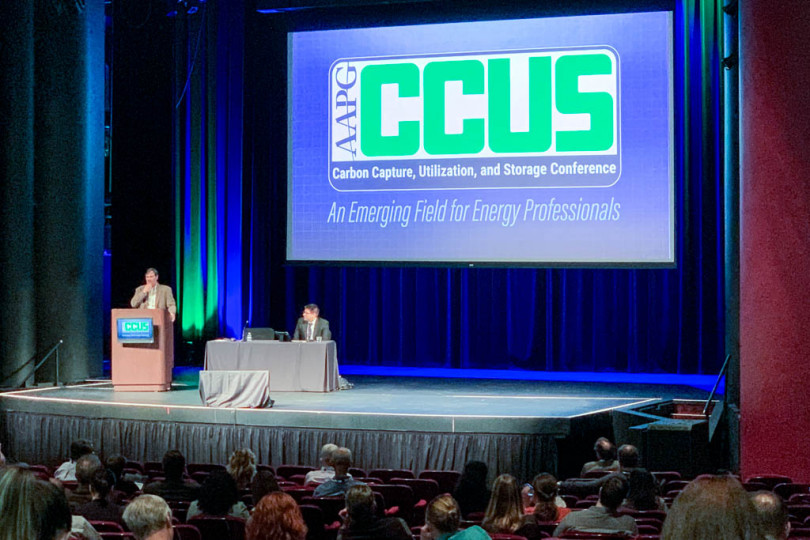Geologists, and others working toward net zero greenhouse gasses, gathered in Houston March 29-31 for the American Association of Petroleum Geologists conference on carbon capture, use and storage. Presenters shared scientific case studies, emerging technologies and risk assessments for various aspects of CCUS including subsurface storage, enhanced hydrocarbon recovery, end-to-end supporting technologies and more.
The most recent report from the United Nations’ Intergovernmental Panel on Climate Change outlines the dire condition of the climate crisis across the globe.
Earth is warming faster than predicted; and if rising temperatures are not immediately addressed, the world could skip past the 1.5 degree-Celsius threshold to surpass 3 degrees by the end of the century. Presenters were clear that now is the time to use all the science and apply every tool available to address greenhouse gas emissions.
Joey Minervini from the Global CCS Institute said that carbon capture is vital to reaching net zero. By using CCUS, nations can achieve deep decarbonization in hard-to-abate industries. CCUS can also enable large-scale production of low-carbon hydrogen. Countries around the globe are implementing CCUS. In 2021, North America added 41 new commercial facilities, Europe added 25 and five additional facilities were built across the rest of the world.
Minervini said that with the passage of the Infrastructure Investment and Jobs Act, CCUS funding is ramping up. The bill carves out $2.5 billion for storage validation and testing for large-scale storage; $8 billion for hydrogen hubs; $2.5 billion for demonstration-scale CCUS projects, $1 billion for pilot projects and $3.5 billion for regional direct air capture hubs.
One of the major challenges before the world is the need for rapid growth of CCUS to meet Paris Agreement climate goals. The world will not reach net zero by renewables alone, a fact scientists drove home during the three-day conference.






